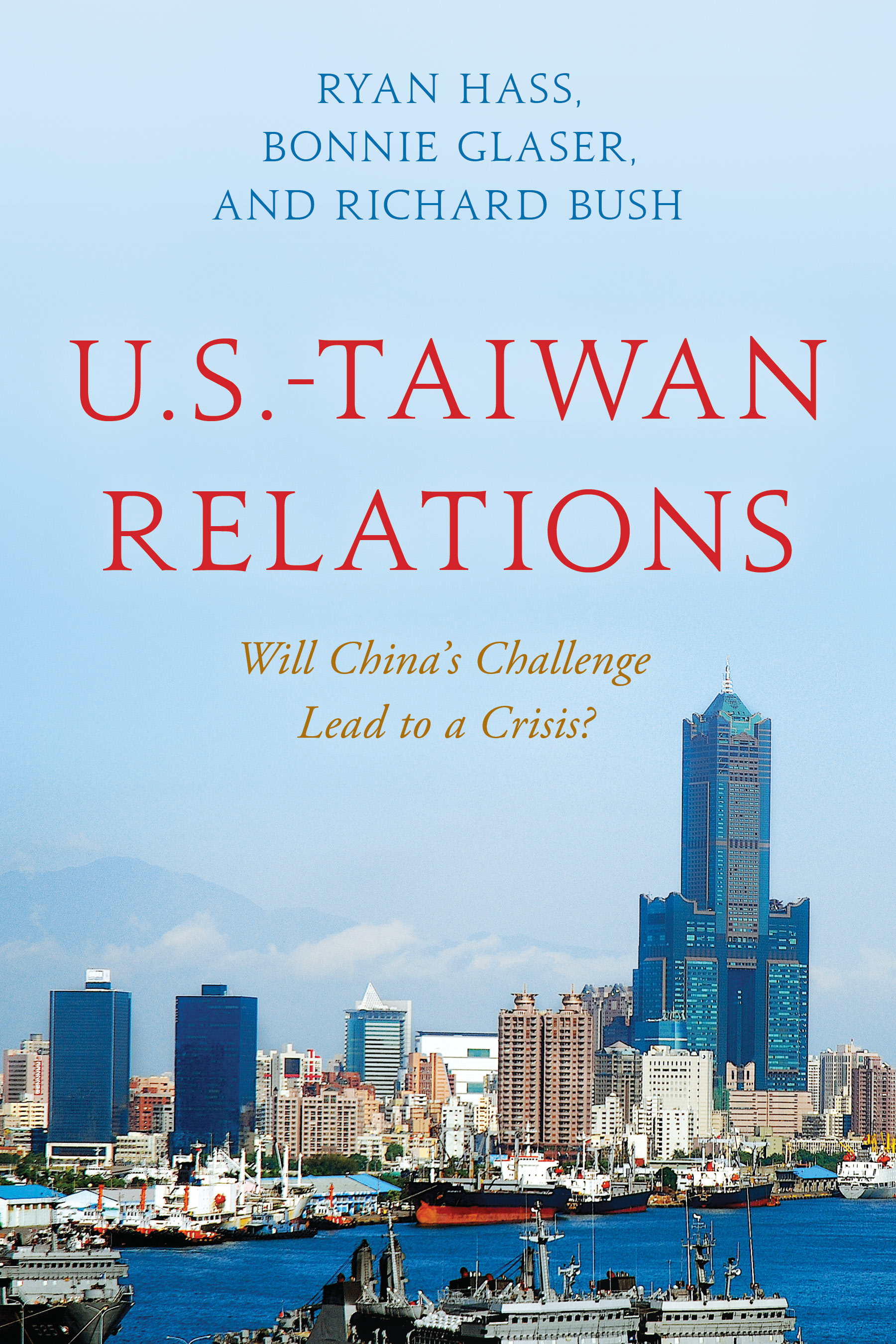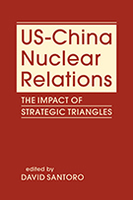Senior Fellow - Foreign Policy, Center for East Asia Policy Studies, John L. Thornton China Center
The Michael H. Armacost Chair
Chen-Fu and Cecilia Yen Koo Chair in Taiwan Studies
Nonresident Fellow, Paul Tsai China Center, Yale Law School
In the months since the balloon incident, the U.S.-China relationship has resembled an airplane steadily losing altitude. But instead of working together to pull up the nose of the plane to avoid a crash, U.S. and Chinese officials have been bickering in the cockpit over who is to blame for the downward trajectory of relations.
During this period, American officials registered public frustration (with justifiable cause) that they did not have willing counterparts in Beijing to work with to stabilize the bilateral relationship. Chinese officials similarly grumbled that the United States was implacably hostile and bent on suppressing China’s rise. They argued that there was nothing to be gained by dealing directly with American counterparts because American animosity was fueled by insecurity over China’s rise, not by specific Chinese actions of concern. Xi seemingly endorsed this attitude, complaining publicly that the United States and its partners were undermining China’s development by pursuing “all-around containment, encirclement and suppression of China.”
In recent days, however, there are indications that both countries might be working their way out of their bitter moods toward each other. Both sides have resumed contact at senior levels and signaled plans to further strengthen bilateral exchanges in the weeks ahead. During a press conference at the Group of Seven summit, Biden predicted a near-term “thaw” in relations with China.
If it occurs, such a thaw likely will be driven by mutual self-interest. Biden has consistently emphasized the need to lower risk in the U.S.-China relationship and compete responsibly without veering into conflict. Xi faces mounting challenges, including but not limited to softening economic growth, rising youth unemployment, mounting international wariness of China’s political economy, and simultaneous strains between China and virtually every developed economy. Washington and Beijing also share an interest in laying the groundwork for productive leader-level exchanges when Biden and Xi are together at the Group of 20 in India in September and the Asia-Pacific Economic Cooperation leaders meeting in San Francisco in November.
Reflecting the criticality of the coming period between now and upcoming leader-level engagements in the fall, Kurt Campbell, the U.S. National Security Council coordinator for Indo-Pacific affairs, recently noted, “I think you will see in the coming months whether it’s going to be possible to reestablish effective, predictable, constructive diplomacy between the United States and China.” Recognizing that China also will get a vote in the conduct of relations, there are several adjustments available to the United States during this coming period that could raise the likelihood of pushing the relationship in the direction of becoming more “effective, predictable, and constructive.”
First, Washington can reprioritize direct, private diplomacy with China. Public spectacles, such as the March 2021 meeting between U.S. and Chinese diplomats in Anchorage or the more recent dust-up between Blinken and Politburo member Wang Yi on the margins of the Munich Security Conference, are counterproductive. They limit America’s ability to influence how China pursues its interests, shake the confidence of America’s allies in the soundness of American strategy, and poison personal relations between participants. Pushing Xi publicly will generate the opposite of the intended effect. Private letters, phone calls, quiet conversations among national security advisors, drama-free visits, and work through embassies will hold greater prospects of making progress on American priorities with China.
Second, the United States should pause efforts with Beijing to negotiate crisis management mechanisms and principles for the conduct of the relationship. At a tactical level, there is no scope for progress on these issues in the current climate of relations. Pushing these topics now will be more aggravating than risk-reducing.
At a more strategic level, there is a real risk that pursuing this line of discussion will lead U.S. officials into a dead end with a poison trap. Every Chinese official with whom I have spoken about guardrails and principles for the relationship equates such an understanding with acceptance of China’s “core interests,” especially in relation to Taiwan. Allowing any perception to emerge that the United States is pursuing guardrails with Beijing that involve negotiation over America’s approach to cross-Strait issues would do more harm than benefit.
Related Books
 U.S.-Taiwan Relations By Ryan Hass, Bonnie Glaser, and Richard Bush
U.S.-Taiwan Relations By Ryan Hass, Bonnie Glaser, and Richard Bush
 US-China Nuclear Relations: The Impact of Strategic Triangles
US-China Nuclear Relations: The Impact of Strategic Triangles
Contributions by Robert Einhorn
China 2049 by David Dollar, Yiping Huang, and Yang Yao
If U.S. officials want to prioritize risk reduction with China, then they should instead table concrete proposals around specific issues. For example, they could propose a mutual acceptance to refrain from future anti-satellite tests that create orbital debris. They could negotiate understandings around limits on the uses of artificial intelligence-enabled weapons systems. These would be more productive avenues to reduce risk than creating an opening for China to press the United States to modify its approach to Taiwan as a prerequisite for progress on broader principles to guide the relationship.
Third, Washington needs to get back into the business of channeling Xi’s ambitions to constructive ends. Xi wants to enjoy dignity and respect on the world stage. He wants to be viewed as a global leader and a peacemaker. Washington should look for ways to harness these ambitions to support its own priorities. For example, rather than pouring cold water on Beijing’s inability to mediate Russia’s war of aggression against Ukraine, the United States and its global partners should look for discrete areas to urge China to take on greater responsibility for lowering tensions and relieving suffering. Washington could push Beijing, for example, to take the lead in pressuring Russia to keep grain routes open through the Black Sea for the sake of global food security. Washington and its partners could encourage Beijing to take the lead in setting expectations in Moscow and Kyiv that attacks against nuclear power plants such as Zaporizhzhia would constitute nuclear terrorism and provoke a harsh international response. Beijing also could be urged to organize international efforts to pool funding for Ukraine’s $411 billion reconstruction bill after the war concludes.
China’s leaders also want to be seen as global leaders on climate issues, despite also being the world’s largest emitter of carbon dioxide. Washington should leverage Xi’s interest in being perceived positively on climate issues to press China more aggressively to curb domestic emissions and invest more in accelerating the renewable energy transition around the world. Ultimately, the renewable energy transition will not succeed without massive Chinese contributions. China should be incentivized to step up on this issue by being assured that America and others will recognize and welcome its contributions.
At the same time, Washington is in a stronger position to address challenges posed by China working with its partners than it is alone. Coalitional strength is critical for influencing China’s choices. To tighten coordination with its partners, Washington needs to credibly assure them that its strategy is designed to nudge Chinese behavior in less predatory, hostile, repressive, and mercantilist directions, rather than being designed to halt China’s rise or overthrow the Chinese Communist Party.
The more the United States relies exclusively on threats and punishments for dealing with China and frames competition in existential terms, the more that America’s allies and partners will hit the brakes to guard against being pushed into a head-on confrontation with their largest trading partner. Few, if any, of America’s partners are interested in enlisting in an anti-China bloc. To assuage such anxieties, Washington needs to be prepared to commend Chinese contributions to global challenges, even as it also pushes back against Chinese repression at home, unfair economic practices, and bullying abroad.
Biden also will need to engage directly to elicit a public statement from Xi of the latter’s interest in moderating relations. This would provide a necessary signal to China’s party and government apparatus that Xi wants to move forward in managing U.S.-China tensions and that they will need to as well.
Even as it makes these adjustments, Washington will need to remain firm and tolerant of friction with Beijing. There will continue to be flare-ups and Chinese challenges to American interests that will require resolute American responses. The road to more resilient and productive U.S.-China relations will not follow a straight line; it will have ups and downs and tests of wills.
Ultimately, any progress toward a more functional and predictable U.S.-China relationship will require political courage and determined efforts from both sides. Neither side can deliver greater stability on its own. This may be too much to expect of leaders in Beijing and Washington in current circumstances. The path of least political resistance in both capitals is to continue blaming the other side for the sustained slide in relations and for mounting problems at home. While such an approach might be expedient in the near-term for diverting anger abroad, it will not improve the health, safety, and prosperity of people in either country over the longer term. Ultimately, these are the metrics upon which leaders are measured by history.
Domestic power reshuffles in 2022 and US-Taiwan-China relations






